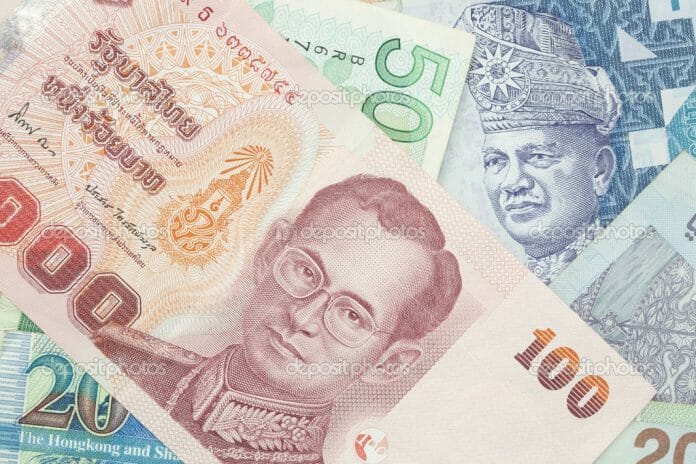Most Asian emerging currencies and stocks were mixed on Wednesday (Aug 24), with Chinese equities and the yuan leading losses, as investors exercised caution ahead of the US Federal Reserve’s Jackson Hole symposium later in the week.
Equities in Shanghai and stocks in Kuala Lumpur declined 1.8% and 0.5%, respectively.
After the Fed’s aggressive rate-hike moves to stamp out red-hot inflation in recent months, investors are waiting for more clues on the monetary policy from central bank officials when they meet at the symposium in Wyoming on Aug 25-27.
Minneapolis Fed President Neel Kashkari was the latest official to dent sentiment after he reiterated the need to deliver even more aggressive rate hikes to control inflation and bring down soaring prices.
“Asian markets, like others, are in a nervous holding pattern ahead of the Jackson Hole speech by Jerome Powell on Friday, so all are probably a little bit offered today,” Reuters reported Robert Carnell, regional head of research Asia Pacific at ING as saying.
The dollar index steadied at 0.1% just below its recent peaks, adding pressure to the emerging Asia currencies.
China’s yuan weakened 0.4% and hovered around two-year lows against the US dollar as the People’s Bank of China remains decidedly dovish in its attempt to jumpstart the slowing second-largest economy.
Stocks in Shanghai hit their lowest since over two weeks. Analysts attributed the weakness in the stock market to the country’s gloomy economic outlook.
“Market is looking for a change in some policies towards Covid and also some changes to address the current housing market,” said Dominic Schnider, head of commodities and APAC foreign exchange at UBS Wealth Management.
“The market is seeing the support which is coming in, but at this point in time, it simply doesn’t seem that the market is seeing that as being enough,” he added.
However, the country’s state media said the yuan has no basis for long-term depreciation as China’s strong exports should offset a buoyant US dollar and hawkish Federal Reserve tightening.
Elsewhere, South Korea’s won firmed 0.3%, a day before the country’s central bank was expected to raise interest rates by 25 basis points (bps), according to all but one of the 36 economists polled by Reuters. One forecast a 50 bps hike.
The Thai baht depreciated 0.3% after its central bank governor said the country would raise interest rates gradually to ensure a smooth take-off as it fights inflation.
The Bank of Thailand (BOT) earlier this month joined the policy tightening bandwagon, which it had avoided until recently for the sake of its tourism-reliant economy. It hiked the key interest rate by 25 basis points for the first time in nearly four years.
Among stock markets in the region, Philippine’s benchmark index rose 0.4% and equities in Bangkok gained 0.2%.









